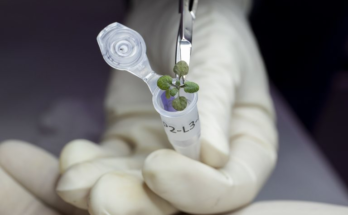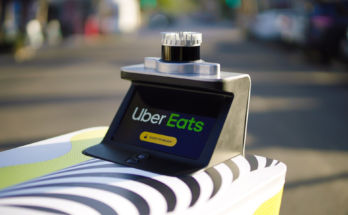
Mark Bittman is most famous for the 30,000 recipes he’s developed in decades of being a food journalist and authoring 30 books focused on cooking and eating. But this month’s Animal, Vegetable, Junk: A History of Food from Sustainable to Suicidal is not another recipe book, it’s a deeply researched call to arms to reshape our food system to center people and planet rather than profit.
Bittman opens this food history by quoting four figures: Naomi Klein, John Muir, Rachel Carson, and Malcolm X—four people from different eras but bound by their understanding of the interconnectedness of the world—before walking readers through hundreds of food mistakes throughout human history, from the salinization of Sumerian wheat fields to the sugary backstabbing origin of Heinz ketchup.
He does not mince words: “Agriculture has, over the course of human history, gotten away with murder. With each passing century, it’s gotten better at it, until it became a justification for imperialism and genocide.” Today’s deeply inefficient and fossil-fuel-powered food system is only this century’s attempt to exploit labor and resources. Along with the structural pressures on farmers, the climate crisis is a long-term form of violence on agriculturists, perpetrated by rich countries, that affects the livelihood of the poorest farmers on Earth—and its legacy is set to stretch for decades to come.

This new book feels like Bittman at his most openly radical: anti-capitalist, pro-labor and organizing, an advocate for a Green New Deal land reform initiatives to give Black and brown Americans the lives and food systems we deserve. He takes time to outline how slavery centralized food production into distant plantations where unimaginable quantities of a single crop were forcibly harvested. This helped the rich ignore the genocide and ecocide that plantation agriculture perpetuated, while establishing a precedent for food to be grown en masse by distant strangers in large tracts of land. Throughout the book, Bittman hammers home how slavery’s effects can be felt throughout our present-day food system as well as the opportunities the U.S. had for agricultural reparations—opportunities that have historically been denied to Black Americans (though more are on the horizon).
G/O Media may get a commission
Animal, Vegetable, Junk is a great introductory book on agriculture to give to a loved one—perhaps someone who already loves Bittman for his creamed spinach or no-knead bread—as a primer into history’s many agroecological mistakes and the way we can build better food system. Earther spoke with Bittman about the new book, the Biden administration’s food policy, and collective climate organizing. The interview has been edited for length and clarity.
Pearse Anderson, Earther: This book has received praise from everyone from Vice President Al Gore to Jared Diamond to Top Chef’s Tom Colicchio. I’m curious to hear from you, what is your intended audience of the book, and what do you hope to inspire in people when they’ve finished this tome?
Mark Bittman: This is a book for people willing to read serious nonfiction, anyone who’s willing to open an interesting book about something that’s affected every human who’s ever lived. I want people to take food more seriously to think about how the food system affects just about everything: the way that we are doing agriculture, processing food, and eating food is a crisis. We often overemphasize some crises and we underemphasize other crises, maybe it’s crisis fatigue, but the way we farm and the way we eat are both crises, and we should treat them as such.
Earther: You finished writing the book in 2020, before we knew there would be a Biden administration. Do you feel more optimistic now for agricultural policy change in 2021?
Bittman: A lot is going to depend on Congress, but I do think that Biden is going to make big changes, and that has to mean big changes in the food system. You can’t work on agriculture, you can’t work on climate, and you can’t work on equity without addressing food issues. If he’s going to address those topics, then food is going to be part of the picture.
Earther: What agricultural and environmental changes do you want to see the Biden administration take on during these first 100 days in office?
Bittman: I could be specific and say end the ethanol mandate, end subsidies to corn, increase eligibility for food stamps, raise the allowances, and so on. But anything that moves in that direction is going to be is going to be welcome. There’s not going to be a revolution that sets things so suddenly in the right direction that we’re all going to wake up one morning with our head spinning. There’s going to be a series of decisions that move things incrementally, even in climate change, even with covid-19. We don’t know what will work until we try things out—what works on paper is only rarely what works in the real world. As Mike Tyson said, “everybody has a plan until they get punched in the mouth.”
Earther: In the ending pages of Animal, Vegetable, Junk, you recommend supporting a Green New Deal, undoing land theft, and distributing wealth hoarded by mostly European American men. What would a post-Green New Deal kitchen look like, and why should home cooks and everyday Americans be excited for one?
Bittman: I don’t know if people of our generation—either yours or mine—would be excited by a kitchen that’s stocked by a just and fair food system. Part of the issue is that we don’t teach children what real food is, and until we do that we won’t have grown-ups who understand food very well. It’s hard to change your food habits, which are as greatly influenced by marketers as your own parents, and your parents’ habits were greatly influenced by marketers, because we’re three, four, five generations into this now. Until we make a conscious decision that we’re going to teach four year olds where food comes from, what it takes to grow real food, what healthy eating means, we’ll see adults claiming that they have a right to eat a Whopper whenever they want. They’ll say anything less is deprivation. And that’s not something we’ll deal with tomorrow.
Earther: So you’re saying that because of how thoroughly meat consumption, ultra-processed foods, and so on have been ground into us that the first generation that could be excited for like a post-Green New Deal food system would be a generation that’s not been born yet?
Bittman: (laughing) Yeah, more or less not one born yet. I’m not saying we can’t make changes, just that a lot of people would be disappointed if we mandated a 50% reduction in the consumption of animal products and a 90% reduction in the production of junk food. Yet, in 100 years, that’s what the food system is going to look like or we’re not going to be here.
Earther: You criticize capitalism throughout this book, both through the lenses of justice and climate, and instead point to other models of governance like the Black Panthers and peasant rights groups. Do you see yourself as anti-capitalist?
Bittman: I’ve seen myself as a socialist since 1970. It doesn’t mean that much really. I mean, it does, but what you’re doing on a daily basis is important, not how you label yourself. Neil Stephenson, the science fiction writer, said something like, “We all know that there’s not going to be capitalism 1,000 years from now. So why don’t we get started on building a new alternative today?” That’s a good long term view.
Earther: You’ve developed roughly 30,000 recipes in your many years as a chef and writer, including variations and updates. How has the way you created recipes changed to focus on the climate and agroecology?
Bittman: It started to change 20 years ago when I wrote How to Cook Everything Vegetarian, and I became more concerned after writing Food Matters and Vegan Before 6. Now, I take it for granted that recipes should be plant-forward and that a large portion of them should contain little or no meat. Thirty years ago, I certainly didn’t think that way. But we’re up against the food system that spends literally billions of dollars a year marketing junk.
Earther: You literally wrote the book How to Cook Everything, but in recent editions you’ve edited down recipes that are less sustainable, like swordfish, tuna, and shrimp dishes. Do you hope more cookbooks or food magazines edit or phase out recipes for climate or environmental justice reasons?
Bittman: The short answer is yes, that should happen. I think it is happening. There will be fewer recipes with animal products and more appealing plant-forward ones. There are writers, magazines, and publishers that recognize how important it is, and that it’s what people want. But recipes are our roadmaps, and people have to make their own judgments. We’re doing more of that starting this month with the launch of the Bittman Project. Besides developing cookbooks and newsletters with recipes and news, we’ll have video and audio components that can give people an approach to food that is all-encompassing, from food policy to recipes.
Earther: Recipe developers and food magazines often put the onus on eaters to change their behaviors to “eat right” and focus on personal diet and wellness, which you rightfully critique in your book for not challenging the status quo because they’re not accompanied by changes in supply and policy. Later, you write that movement organizing, coalition building, and protesting creates meaningful change. What do you wish the recipe industry did to move from focusing on personal self-help to collective help, such as working in solidarity with protest movements?
Bittman: That’s an interesting question, it might be more interesting than my answer. Because if you asked me what you could change in your life to make a difference to yourself and the world, changing your diet is one of those things. But you don’t change society by changing your diet. We need to act collectively in order to create meaningful, lasting change. We need to see the Earth not as a mine to be stripped of resources but as a pantry that needs to be replenished. We’ve avoided running out of resources through technology, but I don’t think technology is going to come to the rescue. I think acting collectively is the only way that we can really save ourselves.
Now if food writers, individually, want to do the right thing? That’s great. But I don’t think we can count on food publications to be organizing or heralding a new era. We need to do the groundwork of organizing our neighborhoods, of supporting local farmers and encouraging new farmers, and trying to pass legislation that goes from limiting marketing of junk food to children to land reform. That’s a broad spectrum and everything in between those two things is important to work for. It’s not like personal decisions do not matter, but it’s that they don’t work for everyone is that not everyone has equal access to food. Ensuring equal access means going beyond food to social justice, health care, and the essential rights of every human to housing, health, food, etc.
Earther: Are there any specific land reform initiatives from other countries that we should use as models for the kind of land reform that we need in the U.S.?
Bittman: Brazil redistributed as much land in the early 2000s as it had ever done in its entire history, and did it fairly and equitably. Now, I don’t know what Bolsonaro has done to undo that, which goes to show the importance of encouraging and forcing governments to make those kinds of changes while building strong organizations that can push governments to maintain those kinds of changes. What government does, government can undo, and that’s both good and bad.
Pearse Anderson is a Gen Z journalist and cli-fi writer who covers climate, food, books, and internet culture. He can be found at @pearseanderson on social media.



